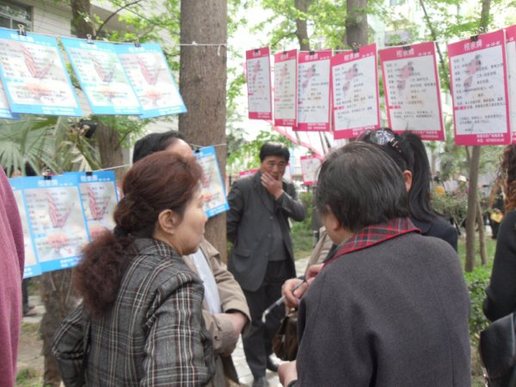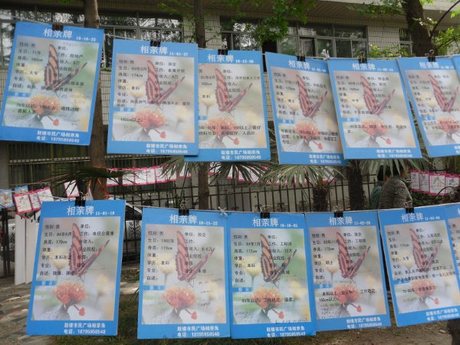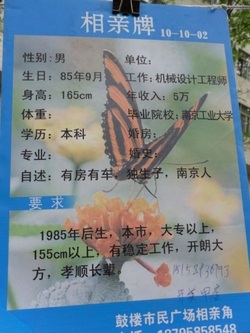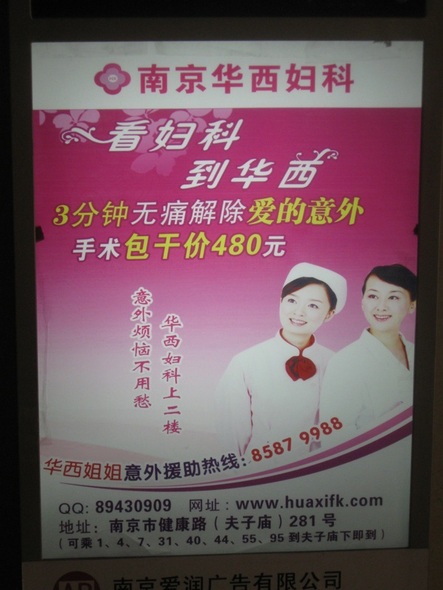Looking for my current blog, contact information or portfolio? Check out nikobell.wordpress.com!
2,000 calories may be a good estimate for how much the average person should eat, but not for me. I need a surplus.
Bitter experience has taught me that I need to be eating far more than that to gain anything. The scale hardly starts moving until I'm over 3,000 calories a day. And that's a lot of food. So I need to do two things: eat hard, and eat smart. Eating hard means eating frequently and as much as is comfortable. It really is hard work. Sometimes I just want to relax and fast for a day, or eat nothing but celery sticks. But nothing was ever accomplished by giving up. Passover is terrible for gaining weight. Here's a picture showing my terrible weight gain results in the past week, as well as some other periods of failure. So why is this Jewish holiday so weight unfriendly?
On December 17, I gave myself a challenge: I would weigh 180 pounds by the day I graduate. That gave me precisely five months to gain 23.8 lbs, starting from 156.2. That's about a pound every six days. Easy, right? Well, maybe if I drank litres of Pepsi every day. But to make things difficult, there were two other conditions: 1. Don't gain an unreasonable amount of fat. 2. Don't do anything clearly unhealthy. Before I continue, here is a pretty graph of my progress so far. 
The KSU wants a new canteen for King's, and I've been covering their progress for The Watch.
Check out "About a Boycott" and "No Such Thing as a Free Lunch." The University of King's College's Tidings Magazine published a section of my blog here.
 With my big exam behind me, I took an afternoon to wander through Nanjing with some friends. We came across this scene in a little park on Beijing Road. Clothes lines were strung between the pine trees, hung festively with pink and blue placards. A crowd of about thirty men and women, none younger than fifty, wandered back and forth. They stopped now and then to take and compare notes, chat, or break out into an argument. What is going on here? A marriage market! These are parents whose children are approaching thirty, the dreaded deadline for marriage, but are too busy to look for a mate themselves. The parents hang up a placard with basic information about their child, and then the searching and negotiation begins. It’s a little like an online dating site, except it happens in real life, and is run by parents.  Arranged marriage is seldom practiced any more in China, but if a young man or woman doesn’t marry, the family will sooner or later have to step in. Thirty is considered to be the deadline for women, slightly older for men. Since women and men cannot legally marry until 20 and 22 respectively, that means an 8-10 year headlong rush to the altar (or sedan chair, in this case.) What with graduating from university, finding a job, and scratching together the resources for a proper marriage, many young people lag behind. If time runs out, then the family may resort to one of many matchmaking services available. These include web based services, community matchmaking centers, speed-marriage-dating, social events, or marriage fairs like the one here.  The pink placards are divided between two groups. The vast majority are women fast approaching thirty, many with masters or doctorate degrees. I was impressed by the credentials of some of these women; they are certainly not being passed up because of lack of education or breeding (see Marina Adshade’s blog here for more on this.) A smaller group of women are about fifty years old, divorced, and looking for remarriage. I only found one blue placard equivalent to the latter category. The men seemed to be slightly older than the women, and respectably but not outstandingly successful. The lack of older men may mean that the older women will miss out (the men invariably are looking for a younger woman), but the older women may also be advertizing to an older male crowd who do not hang placards.  The sign at left reads:
Sex: Male Birth date: September 1985 Hight: 165cm Weight: (blank) Education: Bachelors Employment: Mechanical engineer Yearly salary: 50,000 yuan University: Nanjing Institute of Technology Marriage History: (Blank) Self Description: Has car and house, only child, Nanjinger Requirements: Born after 1985, local, bachelors or up, 155cm or up, has stable job, open and friendly, respectful to parents. (Thanks to Leng Ung for photography.) To anyone who has been following the mind-boggling string of disasters striking Japan, I can give you the faint comfort that at least we here in China are doing fine. Japan is a long way away, and even in the unbelievably improbably worst case scenario, it would mean nothing more than staying indoors for a couple of days.
Of course, none of this stops the course of human nature. At least two exchange students at the university here immediately flew home to Europe, whether of their own choice or by urging of their parents. When I dropped by the supermarket last night I found a lineup to buy salt, many customers with 20 or more bags of salt in their baskets. The salt buying spree apparently stems from two rumours, one that the iodine in salt is defense against radiation, and another that the government plans to collect all salt to refine iodine for the same purpose. The first rumour is a little silly, and the second seems groundless. Perhaps some of this panic comes from memories of the 1976 Tangshan earthquake or the 2006 Wenchuan earthquake, both of which were followed by extreme shortages across the country. The people with real worries in Nanjing are Japanese exchange students, who will be going home to a very different country than the one they left. The community here has been very supportive. I know several of my professors took the time to call each of their Japanese students in the last few days to ask how they were doing, offer their help, and ask after their families and relatives. After four years, the meaning of a disastrous earthquake is still painfully present in the Chinese consciousness. A couple of days ago I was watching "Aftershocks," a Chinese film by Feng Xiaogang. It's not a bad film, and is as good an essay on the Chinese family as most. Near the end of the movie, however, I had an unexpected and unpleasant experience. Our heroine, Deng, tells her stepfather that she has moved to Canada, marrying a Canadian lawyer 16 years her senior. Suddenly we are on the familiar streets of Vancouver as her husband Alexander returns home.
Their dialogue is as follows: Deng: Hey, you're back so early. What happened? Alexander: Something very bad. Deng: Did anything happen to Diandian? Alexander: No, I called her, she's coming home now... Honey, let's go inside. This would be terrible writing whatever the case, especially in a decently written movie like Aftershocks. What makes this scene absolutely unbearable, however, is the intonation of the husband. He speaks with a screechingly unnatural, mechanical voice that sounds halfway between a radio public service announcement and HAL from 2001: A Space Odyssey. As an English speaker, and someone who has actually heard Canadians speak, it made my skin crawl. Perhaps this can be chalked up to a Chinese director hiring an extra who looked right for the part, not realizing what was going in English. David F. Morris, credited for the part of Alexander, definitely doesn't seem to be a known actor. If this is the case, it seems a little short sighted that the producers of a movie that grossed 660 million yuan didn't check things out a little closer. I expect, however, that there may be other forces at work. I watched another Chinese movie recently (great listening practice) called Yip Man 2, about the continued highly fictionalized adventures of Bruce Lee's mentor. While the English language script was a little better than Aftershocks, I noticed that all of the British actors spoke unnaturally slowly and took long awkward pauses between sentences. My guess is that both of these movies are intentionally catering to Chinese audiences, who mostly speak only a little English. Instead of writing or speaking in real English, I suspect that movies are giving audiences a simplified version that makes them feel good about understanding what's going on. Beyond language, there is a slightly sinister subtext about a Chinese woman being brought away from her homeland by a middle-aged, wealthy and somewhat dehumanized white man - in a movie about family, he is conspicuously absent from the climactic reunion. I begrudge this a little less, however, because rich, elderly men making off with marriageable women is actually something of a legitimate complaint in this country. I just wish they would leave my language alone.  Reading the news can be irritatingly difficult in China, but on the internet, the mail always gets through one way or another. I try to keep up with current western events, in fear that I will get home and be embarrassingly ignorant that Prince William got married or prostitution is legal, or anything unlikely as that.
I have been reading recently about the scuffle in the United States over Planned Parenthood, Head Start and a cluster of related issues. It reminded me of this poster, on the left, that I see every day on the way to class. This poster sums up a lot about how the Chinese see abortion. It is posted on an automatic shoe polishing machine in my university residence lobby. Before I say more, here is a rough translation: Nanjing Huaxi Gynecological Hospital For gynecology, choose Huaxi In 3 minutes, painlessly resolve love's little accidents. All inclusive price: 480 yuan. "Accident troubles, worry no more, Huaxi hospital, second floor!" Huaxi sisters accident helpline: The word "abortion" never appears, but for a North American, even of the northern kind, the brashness of this poster is breathtaking. I cannot imagine an abortion clinic advertising like this this in Canada, even if there were a need to do so. Much less would such an advertisement use a cute rhyming couplet to get its message across. It's not that this ad says anything offensive; it just grates on the North American sense of propriety. The simple message behind this ad is "Don't worry." "Don't worry, it's not a big deal. It will only take a few minutes. It's just a little mistake, that's all. It's not even expensive. See, we'll even make a little rhyme about it. And see these nice nurses in clean uniforms? They're your friends. They understand these things. They will make your little problem go away, and they certainly won't say the A word to make you uncomfortable." In China, abortion is also part of a complex moral problem, but not the same one as in the west. The morality of abortion itself is not particularly contested here. I have yet to speak to a Chinese person young or old, male or female, who believes that abortion is inherently wrong. I'm sure such people exist, but their influence is not significant. The real moral issue has to do with premarital sex. Premarital sex is a vice in China, but not a particularly large one. It fits in with drinking too much, gambling, and playing too much World of Warcraft as things that you probably should not do because they will interfere with your life. The Chinese have a healthy respect for privacy, however, so whatever you do in your spare time is more or less your business as long as you do well in school, get a good job, get married, and have children eventually. Also, you should not talk about it too much. Unfortunately, the intense privacy of premarital sex has its own problems. According to studies conducted by Beijing sexologist Ma Xiaonian, Chinese women are painfully uninformed. Many falsely believe that birth control will make them infertile, and thus regularly use the cheap ($4 CAD) and available morning after pill as a substitute. In reality, the inverse is true. Before I went travelling over the winter, a Chinese friend advised me not to use towels in hotels so as to avoid catching STIs. For a Chinese woman, buying a morning after pill once and a while or going in for an abortion is acceptable because - like the poster above suggests - she is just fixing a little accident. Buying condoms or birth control, however, means that she is planning things in advance, which makes her promiscuous. And so here we are, with a blooming industry for cheap, discreet, accessible abortions. However you feel about abortions morally, this is not good news. This business has nothing to do with the acceptance of abortion as a necessary medical procedure - something that came naturally to China - and everything to do with a lack of education about or access to birth control. I have seen more than one mention in the news of a young Chinese woman suffering irreperable damage to her uterus after having a third or fourth abortion before the age of 18. While I think abortions should be availabe everywhere, I would not be sad to see the likes of Huaxi Gynecological Hospital go out of business. |


 RSS Feed
RSS Feed